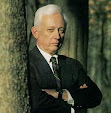We use the code words, the rubric, the concept, Rule of Law, often without thinking about what the concept embraces. Indeed our application of the Rule is still evolving. Every now and then it is useful to enumerate the components and measure ourselves against them.
One definition of the Rule of Law is that every citizen is subject to the law. "Not even the King" is exempt. Thus, the concept of the Rule of Law is antithetical to the idea of the "Divine Right of Kings."
Under the Rule of Law, all use of deadly force is reserved to the king and his agents, to the state and the police. While a citizen may use force in the defense of his home, in public places he has a "duty to retreat." While we recognize certain exceptional circumstances in which an "un-sworn" citizen may exercise police powers, "exceptional" is the key word and the guiding principle.
Recently, in an expressed intent to "reduce crime," some states have adopted laws which expand the circumstances under which the citizen may resort to armed force, but the results have been mixed at best.
Included in the idea of "not even the King" is that of a limited state and government. While most orderly and stable governments have generally accepted limits, in our constitutional system, at least in theory, ours is a government of enumerated powers. The government may do only those things that it is explicitly authorized to do. Everything else is reserved to the citizen and implicitly forbidden to the state. Our officials, officers, magistrates, and agents swear "to preserve and protect the Constitution." This is in stark contrast to the British who swear allegiance and loyalty to the sovereign, even though their Magna Carta may be the earliest example of express limits on the king.
Included in our understanding of the Rule of law is the presumption of innocence. Some of us may think of this in terms of the responsibility of the state to bear the burden of proof in criminal trials. However, this right follows us into the street. We do not have to demonstrate our innocence in order to be able to travel. "Driving while Hispanic" is not a crime and cannot be made one, not even in Arizona or Louisiana.
An Independent judiciary is essential to the rule of law. Whether appointed or elected, the judiciary must, be able to operate without interference from or fear of other branches of government. Military courts and tribunals are an exception to this rule so they must be used with care and restraint.
Part of the idea of the rule of law is that of sanctity of contract, i.e., parties must do what they promise to do. Indeed, a special form of contract, called treaty, is the basis of international law. While most contracts are routinely carried out, and while they are rarely called upon to do so, under the Rule of Law, the courts may be called upon to adjudicate and enforce contracts.
The rule says the citizen may not be deprived of life or property without due process of law, that is without "following the exact course of the law." Of course, killing a citizen without charge, indictment, arraignment, bail, timely trial by jury, and right of appeal would violate this principal. "Nice people do not do that." States that even pretend to the Rule of Law would not do that.
While it may not be obvious until stated, the idea of equality before the law is implicit in the idea of the Rule of Law, that is, all are subject to the law. Not only must the state treat all citizens equally, it must protect one from another. This idea is troubling in a democracy because it is an exception to the Democratic Rule, the one that says "the majority rules." Under the Rule of Law, the majority may not use the coercive power of the state to tyrannize and terrorize any minority. The majority may not use the coercive power of the state to enforce majoritarian orthodoxy. No thought police. No censorship. No state religion or prayer. The state may not compel an oath, any oath, not even one, particularly not one, of allegiance to the state.
A fundamental test of the Rule of Law is that the citizen should not live in fear. He should not fear his neighbors; he should not fear the King and his officers. The citizen surrenders his right to the use of force to the state in return for protection from the thugs. That is no bargain if he must fear the king more than the thugs. Many of our minorities live in perpetual fear of the king. Do I have to name them? We should all keep in mind that if the state can oppress anyone with impunity, it can oppress everyone with immunity.
Like Liberty, the Rule of Law is indivisible. The whole depends on each of the parts. One cannot pick and choose among them. Pull out a brick and the structure falls. Courts, legislatures, law enforcement professionals, even information assurance professionals, and individual citizens must play their role in checking the inherently coercive power of the king and his minions. "The price of liberty is eternal vigilance."
The alternative to the Rule of Law is rule by men, fallible, corruptible, zealous, and ambitious men. We call it tyranny. As law enforcement and security professionals, we are often in the role of officers of the state; that is why this is an appropriate forum for this discussion. We must periodically remind ourselves that we take our oath to the law, not to the majority, not to the state. To carry out our duties in a professional manner and earn the big bucks, we must strive for accuracy, honor, restraint, and courtesy. We must wear the Rule of Law as our uniform, as our only authority.





No comments:
Post a Comment